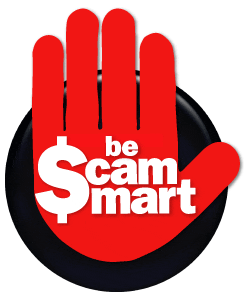
There is something about the internet that makes normal, sceptical humans slightly more trusting when faced with an email or message that suggests the likelihood of a large windfall or free items. It remains a matter for some concern as on the heels of Nigerian scams, come promises of free, phones, laptops, mp3s…You name it they offer it and cause so many of us normally rational humans to flood our contacts’ inbox with ‘spam’ mail and messages.
Here are some of the different types of Web Spoofs or Scams:
Or the modern equivalent of the chain letter. If you send this email to 15 of your friends you’ll get a free blackberry. If you send it to 25 you’ll get 2. Really? I don’t think so and I challenge you to find these persons that have benefitted from these bonuses being touted in these messages.
Yes, your email address has just been randomly selected and you have won £10 million. Sinister in its nature, this particular scam is designed to ultimately swindle you out of your hard earned cash. After all they only need your bank account details and then the millions will be deposited providing you act within the deadline given.
Most of us have received an email from a member of a Nigerian family with wealth. It is a desperate cry for help in getting a very large sum of money out of the country. A common variation is a woman in Africa who claimed that her husband had died, and that she wanted to leave millions of dollars of his estate to a good church. In every variation, the scammer is promising obscenely large payments for small unskilled tasks. This scam, like most scams, is too good to be true. Yet people still fall for this money transfer con game.

This is the most widespread internet and email scams today. “Phishing” is where digital thieves lure you into divulging your password info through convincing the creation of emails and websites that look so genuine and authentic; you believe it to be the original. These phishing emails and web pages resemble legitimate credit authorities like Citibank, eBay, or PayPal. Generally, the rouse is an urgent need to “confirm your identity”. They will even offer you a story of how your account has been attacked by hackers to lure you into entering your confidential information. The email message will require you to click on a link. But instead of leading you to the real login https: site, the link will secretly redirect you to a fake website. You then innocently enter your ID and password. This information is intercepted by the scammers, who later access your account and fleece you for several hundred (sometimes thousand) dollars.
Tip: the beginning of the link address should have https://. Phishing fakes will just have http:// (no “s”). If still in doubt, make a phone call to your financial institution to verify if the email is legit. In the meantime, if an email seems suspicious to you, do not trust it. Being skeptical could save you thousands of lost dollars.
You post your resume, with at least some personal data accessible by potential employers, on a legitimate employment site. You receive a job offer to become a “financial representative” of an overseas company you have never even heard of before. The reason they want to hire you is that this company has problems accepting money from US customers and they need you to handle those payments. You will be paid 5 to 15 percent commission per transaction.
If you apply, you will have to provide your personal data, such as bank account information, so you can “get paid”. Instead, you will experience some, or all, of the following:
- identity theft,
- money stolen from your account, or
- may receive fake checks or money orders for payments which you deposit into your account but must send 85 – 95 percent of that to your “employer”.
Soon you will owe much money to your bank!
There are so many of these schemes floating around the information highway, too much to list here but a very good rule of thumb, if it seems too good to be true, it probably is! And if you need further proof, Google the subject line followed by the word ‘scam’ proving even more help to you.
Some information sourced from: about.com

Share This Post
Why not reach out to us today!
View The Success Stories Of Others
Join other businesses that trusted us with their Digital Transformation

Interested?
Reach us through
Social Networks
Interested?
Send us a Message
We engineer smart solutions that help businesses thrive with digital transformation.